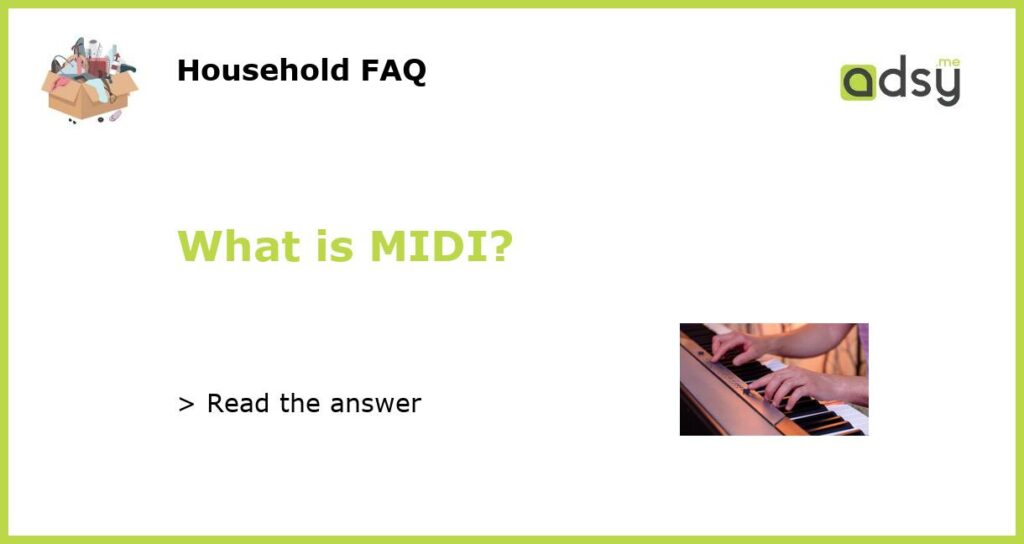What is MIDI?
MIDI stands for Musical Instrument Digital Interface. It is a protocol that allows electronic musical instruments and computers to communicate with each other. MIDI messages are used to control and synchronize the playback of digital audio, including synthesizers, drum machines, and MIDI-enabled software like Ableton Live or Logic Pro.
How does MIDI work?
MIDI uses a standardized language of commands and parameters to transmit information about pitch, tempo, dynamics, and other musical data. When you play a MIDI keyboard, for example, the keys send digital signals to a MIDI interface, which converts them into MIDI messages that can be sent to a synthesizer or other sound module. Similarly, a MIDI sequencer program can record and play back MIDI data that controls the playback of virtual instruments or hardware devices.
What are the advantages of MIDI?
One of the key advantages of MIDI is its flexibility and versatility. Because it is not dependent on specific hardware or software, it allows musicians and producers to create music using a wide variety of tools and instruments. MIDI also allows for precise control over musical parameters, and can be used to automate complex sequences or performances that would be difficult to play manually.
What are some common uses of MIDI?
MIDI is used in a variety of musical contexts, from live performance and studio recording to soundtrack composition and game design. It is also commonly used in electronic dance music (EDM) and other genres that rely heavily on synthesizers and digital sound processing. Additionally, MIDI can be used in educational settings to teach music theory and composition, or to create interactive installations and exhibitions that respond to user input.
Where can I find more resources on MIDI?
If you’re interested in learning more about MIDI, there are many online resources available to help you get started. Some popular websites include midi.org, which offers tutorials, forums, and industry news, and Ableton.com, which features free downloads, tips and tricks, and online courses for users of its Live software. You can also find many YouTube channels and social media groups dedicated to MIDI and electronic music production.






